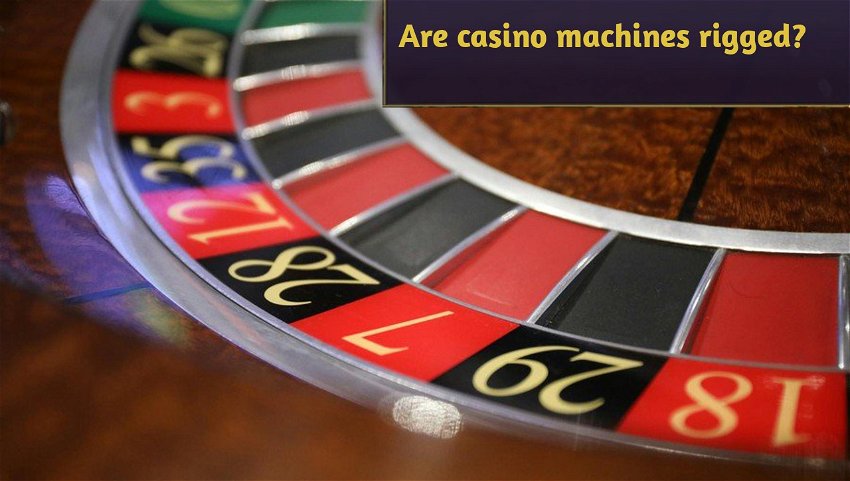As players place their bets and watch the wheels spin, a question often lingers in the back of their minds: Are casino machines rigged? In this exploration, we delve into the intricacies of casino gaming, examining the technologies, regulations, and controversies that shape the landscape of chance and uncovering the measures in place to ensure a fair roll of the dice when you are finding the latest casinos.
Arcades for kids vs Casinos
In some arcade games, particularly those that involve winning prizes or tickets, operators may have the ability to adjust the difficulty level or set the payout rate. This is often done through settings in the game's software or the machine itself. These settings allow operators to control the frequency and size of prizes won by players. While this practice is common in the arcade industry, it's not common in Casinos.
Why wouldn't they rig?
Casinos have a strong financial incentive to maintain a fair and transparent gaming environment for several reasons:
Regulatory Oversight
Most jurisdictions have strict regulations and licensing requirements for casinos. Rigging games would not only violate these regulations but could lead to severe legal consequences, including the revocation of the casino's license.
Furthermore, rigging games constitutes fraud, and legal consequences can be severe, including fines, legal action, and potential imprisonment for individuals involved. The risks associated with rigging far outweigh any potential short-term gains.
Reputation and Trust
Casinos rely on a positive reputation to attract and retain customers. Rigging games would jeopardize their reputation and lead to a loss of trust among players. Word of mouth and online reviews play a significant role in a casino's success, and any perception of unfair play could harm their business.
Long-Term Profitability
Casinos are built on the principle of having a built-in advantage known as the "house edge." This statistical edge ensures that, over time, the casino will make a profit. Rigging games in the casino's favor beyond the established house edge is unnecessary and could lead to negative consequences.
Auditing and Monitoring
Casinos are subject to rigorous auditing and monitoring processes. Gaming commissions and independent third-party auditors regularly review casino operations to ensure compliance with regulations and fair play. Any irregularities would likely be detected through these processes.
Historical Failures: Uncovering Instances of Rigged Casinos
While most casinos lack an inherent advantage in rigging games, it's important to acknowledge the existence of a minority that might engage in such practices.
In 2009, John Kane and Andre Nestor discovered a software glitch in certain video poker machines manufactured by International Game Technology (IGT). The glitch allowed them to exploit the machine's double-up feature, essentially multiplying their winnings without any real risk. Kane and Nestor took advantage of this flaw to amass significant winnings before their actions were detected. This incident highlighted the vulnerabilities of software-based gaming machines and prompted manufacturers to address and rectify such issues.

In 2016, the Grand Casino in Monaco faced a controversy when it was revealed that a roulette wheel at the casino was biased, resulting in non-random outcomes. The bias was not intentional, but rather a result of wear and tear on the wheel. Players who noticed this irregularity gained an advantage by betting on certain numbers more frequently than statistical probability would suggest. The incident underscored the importance of regular maintenance and monitoring of physical gaming equipment in casinos.
The instances mentioned earlier illustrate that instances of rigging can occur sporadically, particularly when a casino fails to exercise due diligence.
How can I ensure that I'm not being subjected to rigging in casinos?
Making sure you have a fair time in casinos is essential, and there are a few things you can keep in mind. First off, choose well-known and respected casinos. Look for places with good reviews and a history of treating players fairly. It's like picking a restaurant – you'd rather go where people have had a good experience. Also, check if the casino has a proper license. This means they are following rules set by gaming authorities, which helps ensure they play by the book.
Understanding the games you're playing is another key. Each game has its own rules and odds, and it's good to know them. Reputable casinos give you all the details about how the games work, so you can be confident you're not being tricked. Keep an eye out for those that work with well-known software providers – it's like buying a brand you trust. And, of course, if you ever feel something is off or not fair, don't be afraid to speak up. There are authorities that oversee casinos and take care of these things.












— Комментарии 0
, Реакции 1
Прокомментируйте первым